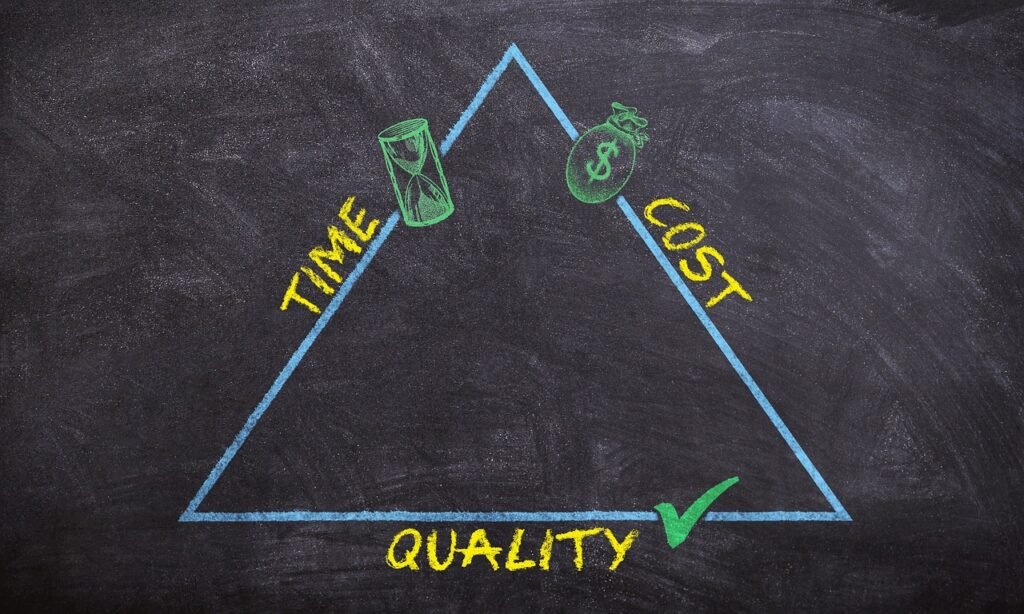Your Ultimate Event Planning Guide: Milestone Moments and Unforgettable Gatherings

Planning an event, whether a wedding or a birthday bash, can feel overwhelming if you are a beginner.
Marking major life events with a joyful and poignant celebration for you and your loved ones helps to elevate happy occasions and ensure they become treasured memories which will last a lifetime.
To ensure your occasion goes off without a hitch, you need to have a clear idea of all the things to consider when planning an event timeline and how to organize all the different elements of an occasion efficiently.
Our event planning guide below will help you to get started planning an event that’s as fun as it is seamless. From a baby shower to a graduation event, scroll down to discover how to get started!

Your Ultimate Event Planning Guide: Weddings, Baby Showers, Anniversaries, Graduations, and Birthdays
Planning an event, whether a more intimate ceremony or a big blow-out bash, requires several stages of planning and execution. And making sure you give yourself enough time to hire staff, decide on a location, and source party decorations is essential.
Set Your Goals and Start Planning
So, you’ve got a vision – a magical birthday bash, a heartwarming baby shower, or maybe even a dreamy wedding that’ll spark Pinterest envy. But before you get swept away in a whirlwind of invitations and floral arrangements, you must build a rock-solid foundation for event success.
Think of planning an event timeline as your pre-party power play, ensuring your celebration lands beautifully (and stress-free!).

Master the Art of SMART Goals:
Vague daydreams about “a fun party” won’t ensure that people have a wonderful time at your event. Get specific! Who’s the guest of honor? What’s the vibe? What do you want everyone to remember?
Set some time to note down a planning an event timeline and goals that are:
- Specific (e.g. a 20s-themed Gatsby bash for your aunt’s 50th, not just “a party”),
- Measurable (100 guests dancing by 10 pm),
- Achievable (stay within budget!),
- Relevant (does it reflect the occasion?),
- Time-bound (everything completed by the big day).
These SMART Goals for planning an event are guiding stars through your event planning journey, keeping you on track and ensuring your event reflects the occasion it is celebrating.
Create an Achievable Budget (And Stick to It!)
Creating a budget for your event doesn’t have to be a nerve-wracking experience. It’s your roadmap to ensuring you stay within your means while creating lasting memories. Here’s how to get started with creating a budget when planning your next event:
Define Your Vision and Goals:
Before digging into numbers, make sure you clearly understand your event’s purpose and what you want to achieve. What are the non-negotiables, and what would be a non-essential nice touch? Defining these goals will guide your spending priorities.

Be Honest About What You Can Afford:
Take a sober look at your finances. Determine the maximum amount you’re comfortable spending and be realistic about any potential additional costs.
Remember, unexpected expenses can arise when planning an event timeline, so factor in a 10-15% contingency fund for peace of mind.
Categorize Your Costs:
Next, you should divide your expenses into major categories to help you spread your available budget properly:
- Venue: Rental fees, deposits, and additional equipment charges.
- Catering: Food, beverages, service staff, rentals.
- Décor: Decorations, flowers, centerpieces, lighting.
- Entertainment: Musicians, DJs, performers, rentals.
- Stationery: Invitations, RSVP cards, programs.
- Attire: Outfits for the host/guest of honor (if applicable).
- Miscellaneous: Permits, insurance, transportation, printing costs.
Estimate the cost for each category, research different options, and prioritize. For example, you might choose DIY decorations to save on cost while splurging on a live band to create a vibrant atmosphere.
Get Creative with Cost-Saving:
When noting down all the things to consider when planning an event, explore budget-friendly alternatives that will enhance the event without compromising on the experience. Options to consider include:
- Off-peak venue bookings or alternative locations.
- Potluck contributions or buffet-style catering.
- DIY decorations or borrowing from friends.
- Local talent for entertainment or volunteer bartenders.
- Digital invitations or e-RSVPs.
- Second-hand finds or rentals for attire.
Track Your Spending Throughout the Process
Use budgeting apps or spreadsheets to track your expenses as you start to spend. Regularly compare your actual spending to your event budget and adjust accordingly to ensure you don’t begin to go over your set budget.
This way, you can stay in control and avoid unpleasant surprises when facing invoices from caterers, entertainers, and venues.

Set Down a Specific Timeline
Your event timeline is your essential roadmap to success. Break down each of the crucial things to consider when planning an event into bite-sized chunks.
These could be tasks like “Finalize catering menu by July 1st” or “Send invitations by August 15th.”
Remember to factor in vendor lead times and research average turnaround times for cakes, photographers, or rental companies to help you avoid last-minute panic attacks.
Teamwork = Dream Work:
You don’t have to be a one-person party-planning machine! Come up with a list of things to consider when planning an event and then match tasks to willing participants.
Delegate tasks, ask friends and family for help, and use their strengths and skills to lighten the load. Your tech-savvy cousin can manage the online RSVPs or wedding website, your artistic aunt can whip up some DIY decorations, and your detail-oriented friend can be your organization queen.
Communicate clearly, set expectations, and make sure to express gratitude. Remember, a happy team leads to a happy (and successful) event!
Planning and Event – Tips for Special Occasions
While the fundamentals of event planning (such as crafting a timeline and budgeting) remain constant, every occasion has unique considerations.
Below, we’ll dive into the specifics of planning for five of life’s most cherished milestones: weddings, anniversaries, birthdays, graduations, and baby showers.

Wedding Planning Guide Tips:
• Time Travel: Start by mapping out your timeline, factoring in engagement parties, pre-wedding events, the ceremony, and the reception. Each stage has different lead times, from securing the venue to booking vendors.
• Budget Bliss: Be realistic about your finances and prioritize wisely. Allocate generously for must-haves like photography and catering and explore creative cost-saving options like DIY décor or off-peak venue bookings.
• Vendor Dream Team: Research vendors that align with your vision and budget. Read reviews, meet in person, and ask detailed questions about packages and services. Remember, your vendors are collaborators in crafting your dream wedding.

Planning an Event for an Anniversary:
• Celebrate Your Story: Tailor your celebration to your specific milestone. A romantic candlelit dinner for your fifth anniversary feels different from a roaring 90s-themed bash for your 25th!
• Budget-Friendly Festivities: Creativity thrives on constraints! Explore DIY decorations, create personalized playlists, and plan activities that rekindle the magic, all within your budget.
• Memories of a Lifetime: Don’t just throw a party – create an experience. Plan scavenger hunts based on your shared history, write personalized vows for each other, or surprise your partner with a special performance.

Things to Consider When Planning an Event for a Birthday:
• All Ages, All Stages: Adapt your approach to the age group. Children’s parties require engaging games and vibrant decorations, while adults might appreciate a sophisticated cocktail gathering or a themed event.
• Theme Time: Brainstorm themes that reflect the person of honor’s interests and personality. A rockstar theme for a teenager’s party or a wine-tasting adventure for a foodie friend can add a personal touch.
• Fun and Games for Everyone: Choose interactive activities suitable for the size and budget of your party. From trivia nights to backyard karaoke, keep the energy high and the guests entertained.

Planning a Graduation Event:
• Commemorate Achievements: Celebrate the graduate’s journey! High school graduations might call for a fun-filled party, while you can celebrate a college graduation with a formal dinner or a weekend getaway.
• Post-Grad Fun on a Budget: Get creative with budget-friendly options like backyard barbecues, potluck picnics, or themed scavenger hunts in the city. Bonus points for DIY graduation decorations!
• Looking Ahead: Inspire the graduates! Include thoughtful speeches, offer words of wisdom, and share resources as they embark on their next chapter.

Baby Shower Event Planning Guide:
• Welcoming Wonder: Embrace the adorable! Choose themes like woodland creatures or whimsical rainbows, and plan games that don’t involve guessing baby food flavors.
• Gift Games and Guest Fun: Keep the atmosphere light and interactive with baby-themed games like “Diaper Jenga” or “Guess the stuffed animal”.
• Planning with a Bump: Take care of yourself! Delegate tasks, ask for help, and prioritize your comfort and energy levels throughout the planning process.

Conclusion – Your Ultimate Event Planning Guide: Milestone Moments and Unforgettable Gatherings
So, there you have it! Your guide to planning an event timeline, budgeting, and managing your tasks. Careful planning, attention to detail, and creativity are crucial to ensuring your celebration is a roaring success and your guests have a wonderful and memorable time.
Remember, planning an event isn’t just about planning; it’s about creating memories that linger long after the last confetti floats away. Personalize your celebrations, inject your personal flair, and, most importantly, have fun!



